Here are some mini reviews based on films I’ve watched on Netflix over the past year.
Her Master’s Voice
2012. Directed by Nina Conti
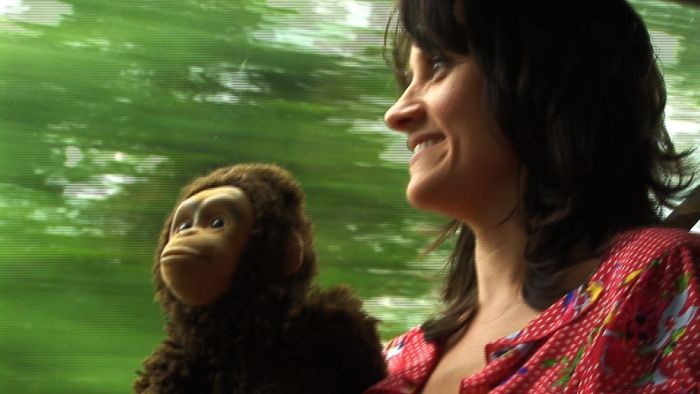
This is one of the most impressive documentaries I’ve seen, and one I’ve wanted to go back to again and again. Nina Conti is a skilled British ventriloquist who works wonders with a simple monkey puppet. She’s beautiful and sharply funny, and much of her humor is based on self-mockery, picking apart the absurdity of her art form. The man who trained her passed away shortly before this film was made, inspiring her to travel to a conference in America dedicated to ventriloquism that he always wanted her to go to, as well as a home for ventriloquist puppets whose owners have died–a strangely haunting place. She brings her monkey along for the ride, as well as a plethora of her master’s old puppets, all of whom she gives a voice to during her travels. The film is very intimate, composed mostly of shots Nina must have filmed herself, as she deals with her complex feelings for her old master by talking to his old puppets. We also get to see the convention and a couple of great interviews with Mrs. Conti’s fellow ventriloquists. Her Master’s Voice is both a deeply personal film and an informative glimpse at the odd world of ventriloquism. It’s slightly sad, very funny, and a joy to watch.
Beyond The Black Rainbow
2010. Directed by Panos Cosmatos
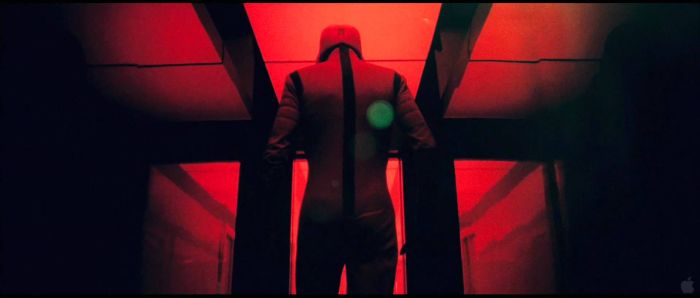
This film is a bizarre blend of the coldness of 2001: A Space Odyssey, the weirdness of a 70’s acid trip and the titillating grunge of an 80’s slasher film. It doesn’t make much sense, but it sure gets under your skin. The music is top notch electronica and the visuals are as gorgeous as they are confusing. The director said he wanted to create a fever dream version of his childhood, based on what his young self imagined horror films were like, and that this project was also part of a healing process for him, dealing with the loss of his mother. It’s shot on 35mm and has plenty of grain for lo-fi film lovers. It’s more art installation than narrative, but it sure is interesting to look at.
The American Scream
2012. Directed by Michael Stephenson
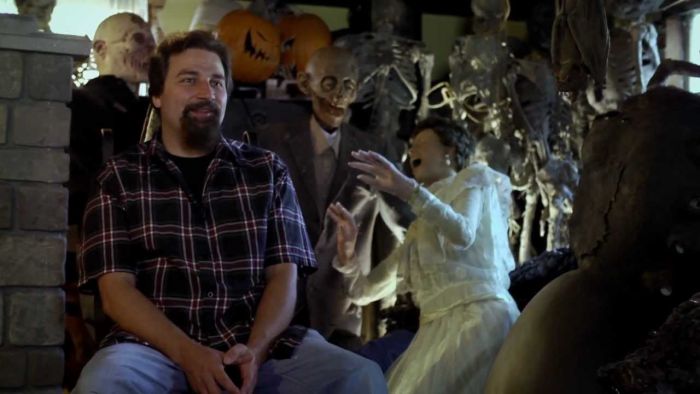
Ever drive by one of those houses festooned with gravestones and corpses in late October and wonder why someone would want their front yard to look like that? This documentary does it’s best to answer that question, and it’s both funny and a little sad. We meet three families that have all been bitten by the Halloween house bug, and follow them from late summer to October 31st as they spend every spare moment and dollar decking their houses out for the holiday. These people are extremely driven, and their passion sometimes borders on the manic, but it’s fun to see their creativity at work and the way they grow closer doing what they love. The father-son duo steal the show as two slightly bumbling yard decorators who make up for their low budget and bad production values with a lot of heart. This film is definitely worth a watch, especially around Halloween.
Wrong
2012. Directed by Quentin Dupieux

There isn’t much absurdist humor in cinema these days, and that’s one of the reasons Wrong feels like such a breath of fresh air. It is, quite simply, a hilariously absurd film. From the first shot you know you’re in for something different: firemen stand around doing nothing as a van burns on the side of the road. One of them even reads the paper. The title appears: “Wrong” and we get the first off-kilter joke of many. By film’s end we’ll be treated to a benevolent mystical dognapper, a man who paints random cars in parking lots, a gardener who keeps losing trees, and one of the most terrifyingly crazy girlfriends of all time. Stilted dialog and terrible accents abound, characters have insane emotional shifts and take strange journeys through time and space, and in one indoor location it’s always raining. Wrong may not have anything to tell us, aside from, perhaps, a general warning about the dangers of crazy girlfriends, but it sure is absurdly entertaining.
Lost in La Mancha
2002. Directed by Keith Fulton and Louis Pepe
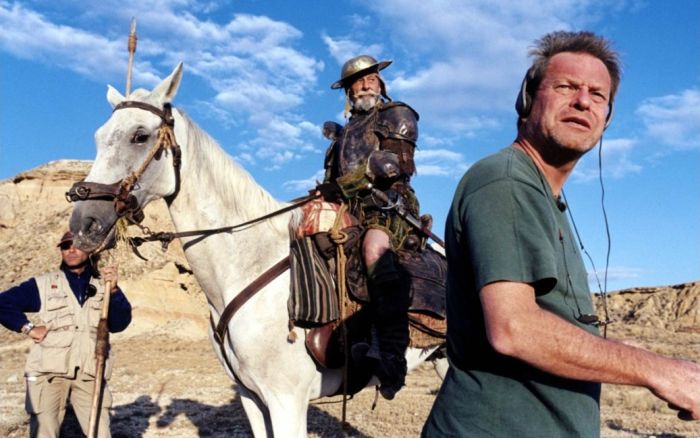
The only thing more spectacular than watching a Terry Gilliam film is watching a Terry Gilliam film fall apart. After dreaming for years of making an adaptation of the classic Don Quixote, Gilliam finally got the chance, and Lost in La Mancha documents this film’s pre production and early shooting periods. We get to see the intricacies of the way Gilliam writes a script, designs sets and costumes, finds locations, and casts. From frame one there are warning signs: actors are late to arrive or get hurt, set and costume designers go way over budget, and locations are ruined by unnatural weather conditions. No film has been made without a couple of these problems, but the combined sum proves to be too much for Gilliam and his crew. What I respect most about the people involved with this project is how professional they were to the bitter end. Even in the most heated moments, no one treats anyone else unfairly. Watching someone’s passion project fall apart around them is not a pretty sight, but it sure is fascinating.
Mirror Mirror
2012. Directed by Tarsem Singh
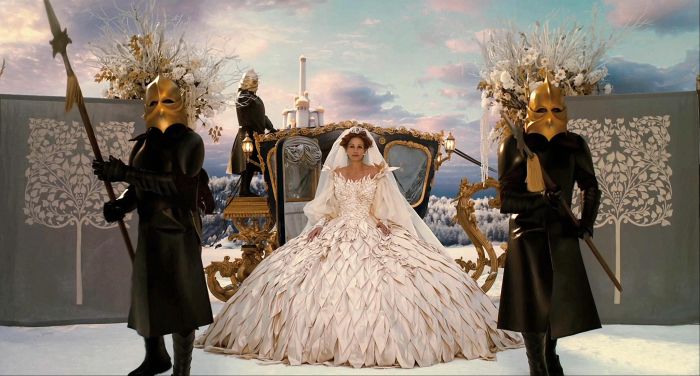
I’m not sure why this film was panned as bad as it was. Sure, the dialog is breezy and disposable and the dramatic stakes couldn’t be lower, but it has the family friendly charm and innocence of a classic studio film, something sorely missed in today’s motion picture climate. A goofy re-telling of the Snow White fairy tale, Mirror Mirror doesn’t take itself very seriously, which is a relief. Visionary filmmaker Tarsem directs, and his art design is bizarre and exquisite. Seriously, Tarsem and his team should do the art direction for everything. The only issues I had with this film was a slight disconnect between Tarsem’s dark if beautiful art design and the frothy script. All in all though this film is an enjoyable family-friendly romp. I recommend it.
